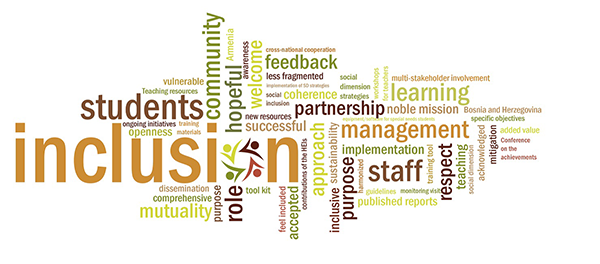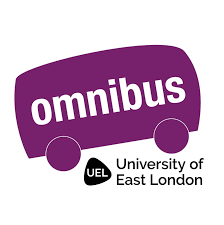The LTEU is engaged in pedagogic research and projects centred on the enhancement of teaching and learning. Involvement in these projects helps us to understand the ways in which our students experience higher education in different contexts, and allows us to learn from, develop and share best practice with our colleagues at Roehampton. Where possible our research engages us with colleagues and students from across Roehampton and at other institutions, providing us with the opportunity for interdisciplinary research on which we can draw to influence policy and practice.
ATTAIN
The ATTAIN project is supported by the European Commission with Paro College of Education, Royal University of Bhutan as the lead and in consortium with University of Roehampton (United Kingdom), University College of Leuven-Limburg (Belgium), and Evaluationsagentur Baden-Wuerttemberg (Germany). The ATTAIN project is a three-year project aimed to develop a set of national standards for teacher assistants to work with pupils with special educational needs and disabilities. The standards are supported by the development of a diploma programme for young people aspiring to become teacher assistants in Bhutan.
E-TALEB
E-TALEB is an EU-funded project aiming at developing the Lebanese Professional Standards in Teaching and Learning and cooperating for innovation and exchange of good practices and experiences relevant to similar frameworks established in Europe.
The acronym of the project "E‐TALEB" merges "E‐" for excellence, efficiency, effectiveness and "TALEB" which means university student in Arabic and the student learning experience is the core of the project.
The main objective of this project is to support the initial and continuing professional development of staff engaged in teaching and foster dynamic approaches to teaching and learning through creativity, innovation and continuous development in diverse academic disciplines and/or professional settings. The project will support the development of a community of researchers in different disciplines who share inter and intra university practices in teaching and learning.
This project will create a professional framework for excellence in teaching and learning in the Lebanese higher education institutions by describing the role of teaching and supporting learning in the terms of dimensions of practice.
E+ Inclusion

Erasmus Plus Project – E+ INCLUSION (Cross-regional Peer Learning and Operationalization of Strategies for the Social Dimension in Armenia and Bosnia and Herzegovina)
The E+ INCLUSION project involves the University of Graz, Austria; The Colleges of Leuven and Limberg, Belgium; and the LTEU team at Roehampton. There are 4 partner universities – State Academy of Fine Arts, Yerevan (lead partner); American University of Armenia; University of Travnic (Bosnia and Herzegovina / BiH ) and University of Tuzla (BiH). Government representatives from the Ministry of Education and Science from Armenia and BiH are also fully involved; as well as several NGOs.
The project aims to foster access to/widening participation in and completion of higher education for students through:
- The development of institutional support mechanisms to expand opportunities for students from vulnerable/ underrepresented groups
- The provision of capacity building activities for responsible HEI staff, to enable them to provide adequate student support
- The development of resources for inclusive teaching and learning
- Awareness raising and capacity building of high school teachers
The Project will run from October 2016- October 2019.
Roehampton has responsibility for Workpackage 2, The review of roles, functions, and ongoing initiatives at partner universities in Armenia and BiH in promoting access to, participation in and completion of HE for students from vulnerable and underrepresented groups.
RAFA 2

RAFA 2 - Working to reduce the attainment gap between students from different ethnicities. A HEFCE funded project.
The University of Roehampton in partnership with Carshalton College and Queen Mary University of London are working together to help reduce the attainment gap between students from different ethnicities.
A government study of 65,000 students in 2007 found that even after controlling for the majority of contributory factors 'being from a minority ethnic community was still statistically significant in explaining final attainment' (Broecke and Nicholls, 2007). Eight years on, a 2015 HEFCE analysis came to the same conclusion.
Grounded within existing research and following on from two previous studies by the University of Roehampton; 'Re-imagining Attainment For All 1' and 'Journeys to Success', the project will look to draw together evidence and conclusions across the three institutions to establish what works, extend the knowledge base, and in conjunction with academic staff develop practical solutions to in part overcome and reduce the attainment gap.
‘Re-Imagining Attainment For All 2’ (RAFA2) is a student-led initiative set up to establish what works, extend the knowledge base and develop practical solutions to work towards reducing this gap.
Learning Gain

The Omnibus Learning Gain study is three year HEFCE funded project in partnership with; University East London, University Roehampton and Brunel University London. Broadly, learning gain is an attempt to measure the improvement in; knowledge, skills, work-readiness, and personal development made by students during their time spent in higher education (HEFCE, 2016). A total of 13 three-year projects were funded in the first round, from 49 bids, across 70 HEIs as a response to HEFCEs call, using a mixture of grades, self-reporting surveys, standardised tests and qualitative methods.
The purposes of the Omnibus pilot outlined in the proposal document are threefold; situating staff and students of partner institutions at its core to connect with the wider national debate, focussing on academic and employability skills, and committing to an institutionally embedded.
The three main aims:
- To establish a definition of learning gain that is relevant to UEL, Roehampton and Brunel’s students and staff and contributes to the development of meaningful national definitions.
- To develop a robust and valid set of indicators of learning gain, concentrating on academic and employability skills.
- To establish an approach that is sustainable across the institutions once additional funding ends.
The omnibus study has been using three types of methods to measure learning gain. This includes academic skills tests, and self-assessment of confidence measures and career development with reference to academic study
More information about learning gain can be found by following:
https://www.uel.ac.uk/research/continuum/projects/omnibus
PICASA Project
PICASA stands for “Promoting Internationalisation of HEIs in Eastern Neighbourhood Countries through Cultural and Structural Adaptations”, and was an EU Tempus funded project which ran from January 2014 to April 2017. The LTEU team worked with EU partner institutions (University College Leuven-Limberg, Belgium; Centro Studi ed Iniziative Europeo, Italy; World University Service , Austria and the University of Genova, Italy) and partner universities from Armenia, Ukraine. Belarus and Georgia. Yerevan State University were the lead partners.
The specific objectives of the project were:
- To integrate international dimension into the teaching, learning and research functions of partner universities through developing and implementing respective policies and procedures
- To develop internationalisation elements for operationalisation of curricula, scholar and student exchange and technical cooperation of the universities
- To identify and develop new skills, attitudes and knowledge in students, faculty and staff to promote internationalisation
- To promote development of an ethos and culture that will value and support inter-cultural and international perspectives, initiatives and their quality assurance (based on NUFFIC’s MINT approach).
Roehampton’s Role in PICASA
Roehampton had a specific responsibility for work package 3, “The operationalisation of internationalisation”. Our focus was on working with programme teams and senior management staff, and to design a range of CPD resources that could be used at all the PICASA universities. Each university chose two programmes, from different disciplinary areas, for this process.
Transforming Assessment Pilot Scheme (TAPS)
Roehampton worked with the Higher Education Academy and seven other UK universities to look at practical ways for HEIs to take stock of their current approach to assessment and identify targeted areas to transform their assessment provision.
The aim of the pilot scheme was to examine ideas suggested in the publication ‘A Marked Improvement‘, and to provide an opportunity for HEIs to develop and share knowledge about the effectiveness of various ways to transform assessment in higher education.
HEART – Higher Education Action for Human Rights Teaching (2012-2015)
HEART was an EU tempus funded project to develop courses and programmes in Human Rights at Universities in five countries in the Western Balkans in cooperation with EU Universities. Best practice guidelines were developed during the project, which encourage academic staff to integrate human rights issues across the academic curriculum. The project was led by Dr Michele Lamb from Roehampton’s Department of Social Sciences.
